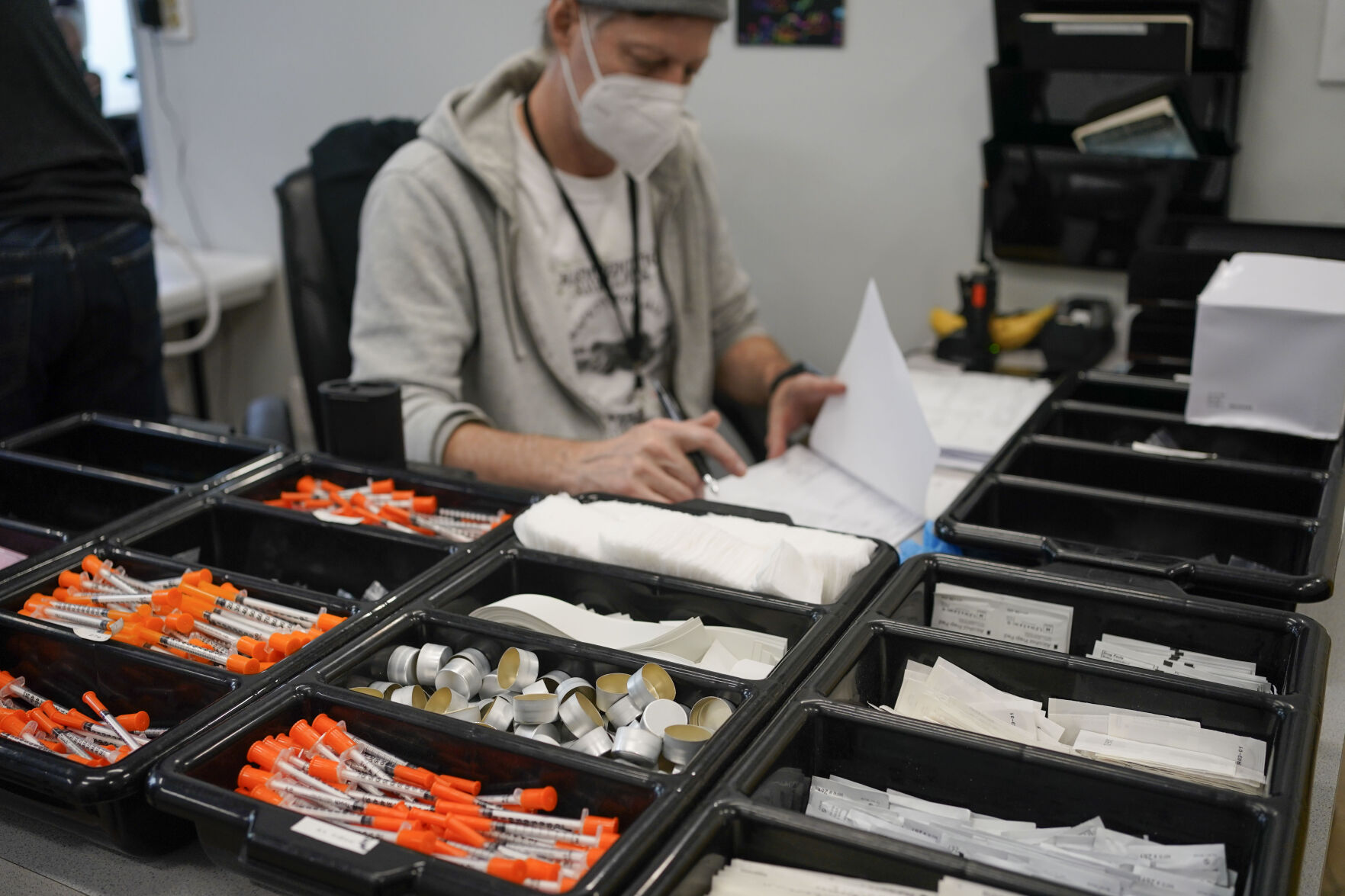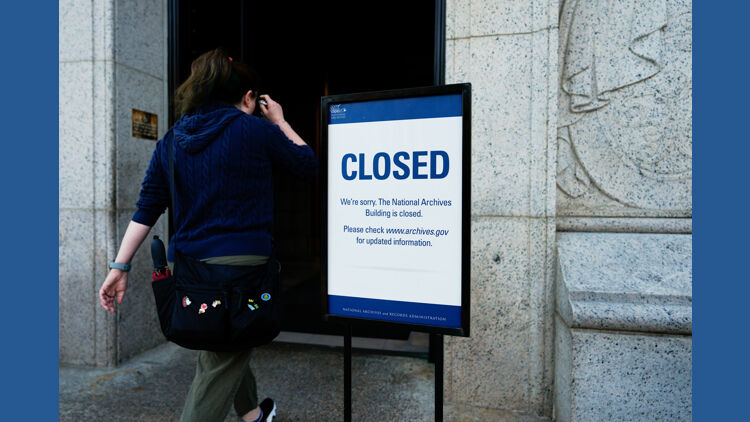Colorado lawmakers battle over legalization of supervised drug injection sites

The Colorado legislature is diving anew into the debate over “safe injection sites” — places where a person can consume illicit drugs under the supervision of medical personnel— with opponents saying it encourages illegal drug use, while supporters arguing it will yield positive results in the ongoing public health crisis.
Drug overdoses have killed thousands of Colorado residents in the last few years. Last year, 522 people died from drug overdoses in Denver alone, the most since tracking began in 1923, according to city records. And though final numbers for overdose deaths statewide won’t be available until this summer, the Colorado Department of Health and Environment recorded 1,454 total drug overdose deaths among Colorado residents from 2023, thus far.
The House Health and Human Services committee this week advanced, on a party line 9-4 vote, legislation to allow municipalities to operate “overdose prevention centers,” but it is unclear whether it will meet the same fate as a similar measure from last year.
Notably, Gov. Jared Polis opposes the legislation. Last year, a spokesman said the governor “has been clear with Coloradans and the legislature that he is opposed to these drug use sites.”
While proponents of the bill and similar measures in other states say supervised injection centers can prevent overdoses and save lives, opponents argue they enable drug use without addressing the root cause of addiction.
This year’s House Bill 1028 is practically the same as House Bill 1202. The measure gives local governments the authority to operate what supporters call an “overdose prevention center.” Last year’s bill, as introduced, sought to grant that authority “after holding a public hearing.”
“In Colorado, we are suffering, as every corner of this country is, with losing our neighbors and our loved ones to preventable overdose deaths,” said bill sponsor, Rep. Elisabeth Epps, D- Denver. “Those deaths are overwhelmingly the result of policy choices, and while often what we can do in our role in this body is limited, one thing we can do is correct choices and make better ones — ones that are based on evidence and science, ones that are driven by the health professionals who are living this work day in and day out.”
Epps, who also sponsored last year’s attempt, noted that the Denver City Council approved the operation of a pilot injection site, contingent upon the state’s authorization.
“This is the only crime I’m aware of where the state is overtly considering that if you successfully complete the elements of the crime and get the evidence to a physical location, you’ll be able to safely enjoy the proceeds of that crime while consuming the evidence,” he said.
Under the bill, the site allows individuals to consume at the site a controlled substance they “previously obtained.”
Sadar also voiced worries about potential negative effects on communities near the injection sites, citing a 2020 Canadian study that reported “devastating impacts” and no decrease in crime in areas adjacent to injection sites.
He cited a recent CU Boulder study found an increase in property crimes following significant pullbacks on the enforcement of drug crimes.
Dr. Katherine LeMasters, an epidemiologist and professor at the University of Colorado School of Medicine, said the sites permitted by the legislation would accomplish three key things: stop overdoses, connect people to treatment and save communities money.
LeMasters said her review of 24 scientific articles on such sites did not reveal a single fatal overdose or increase in drug use. She also noted that one site saw 42% of its patrons seek treatment within two years of meeting with providers at the site.
LeMasters said the “non-judgemental” atmosphere at these facilities enabled individuals to be more open to seeking treatment. Additionally, she said the centers could save communities money on healthcare by addressing medical needs on-site, such as treating skin injuries and testing for diseases like HIV and Hepatitis-C.
Critics insisted the legislation is not a solution.
Marshall Weaver, who battled addiction for 25 years, likened the injection sites to the needle exchange program offered in Fort Collins, where he lives. He said that when he was selling drugs, he would always bring an extra supply to needle exchange locations, viewing them as potential opportunities to attract new customers.
“Needle exchanges and safe use sites are a haven to not only enable individuals to continue their destructive behaviors, but also to make new and better connections with people who are doing the same things,” he said. “I understand the desire to save lives and reverse the devastating effects of overdose, but safe use sites are not the solution to our overdose rates and the current drug epidemic.”
Weaver said users leaving the injection facilities under the influence could lead to potentially violent or dangerous behavior. Drawing from his own experience, Weaver cited instances of individuals overdosing at needle exchange facilities, emphasizing the risk of someone experiencing an overdose in their car after leaving or posing a potential danger to themselves or others.
Advocates for the injection sites maintained they would prevent overdoses, as users would be using drugs under the supervision of medical professionals, who could intervene if someone’s life is in danger.
Mary Jane Maestas with Promotores de Esperanza said her cousin Chris’s death may have been prevented if he had access to an injection site. Chris, who was in recovery from a heroin addiction, relapsed and unknowingly consumed the drug laced with fentanyl, leading to his death. It took three days for someone to discover his body, Maestas said.
People like Chris feel stigmatized and often resort to using drugs in secret, Maestas said, meaning no one will know if something tragic happens. She advocated for the establishment of “safe, supervised spaces,” emphasizing that such environments could prevent overdoses and save lives.
“By allowing people to use drugs safely with support nearby, we are saying that their lives are valued,” she said. “I believe my cousin Chris and countless others would be alive if overdose prevention centers were an option for people with substance abuse disorder in Colorado.”
Safe injection sites as a drug policy has been adopted — or rejected — in some parts of the country.
Rhode Island became the first state to legalize them in 2021, while cities like Philadelphia have banned them altogether. Similar bills were struck down in California and Vermont. The National Institute of Health recently provided a $5 million grant to New York and Brown Universities for a study examining the effect of injection sites in New York City and Providence, Rhode Island on overdose rates.













